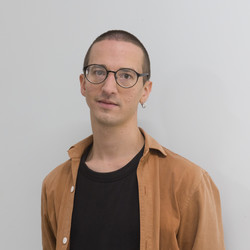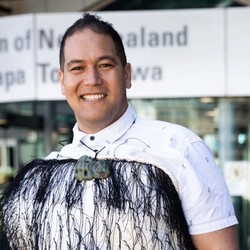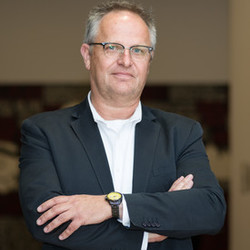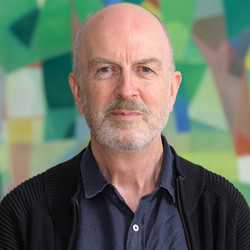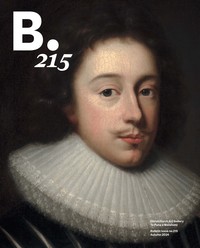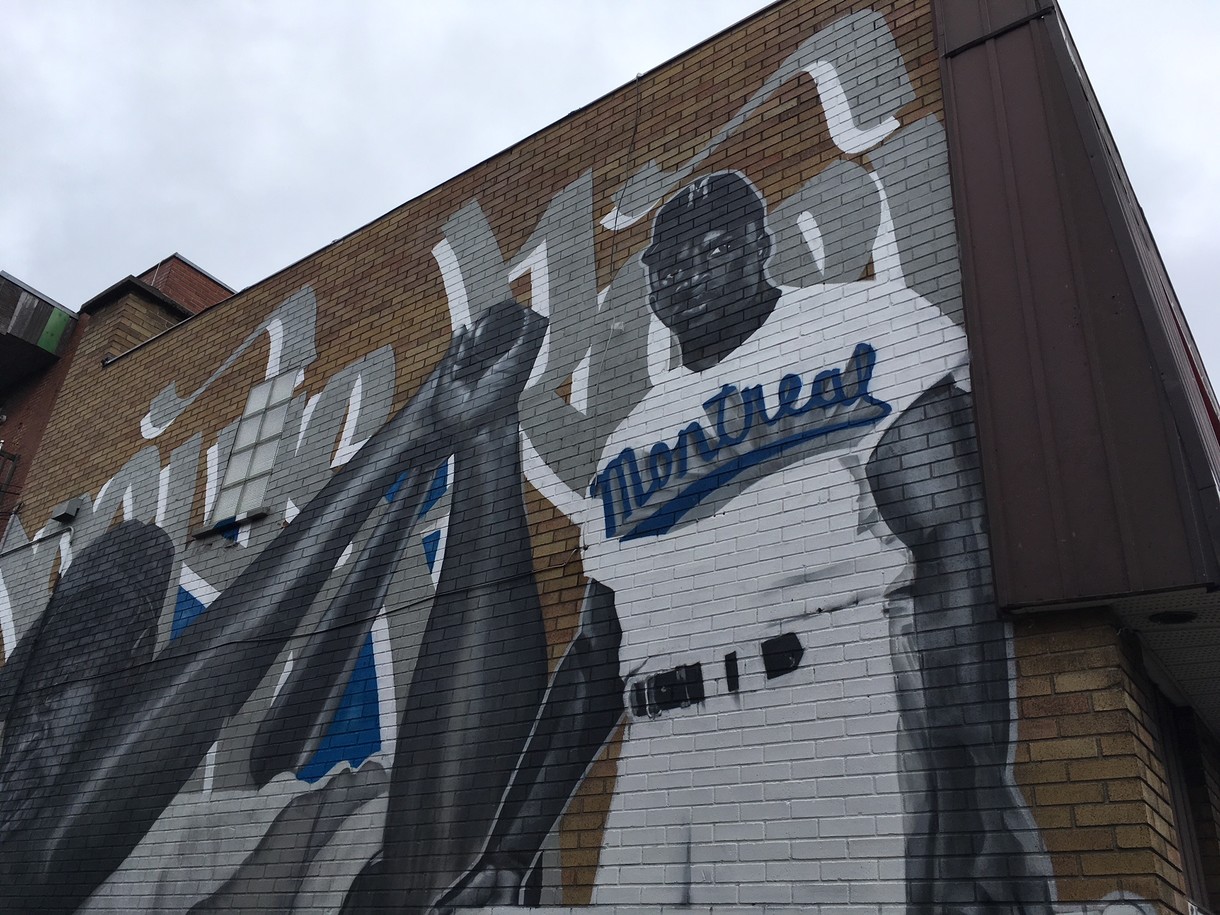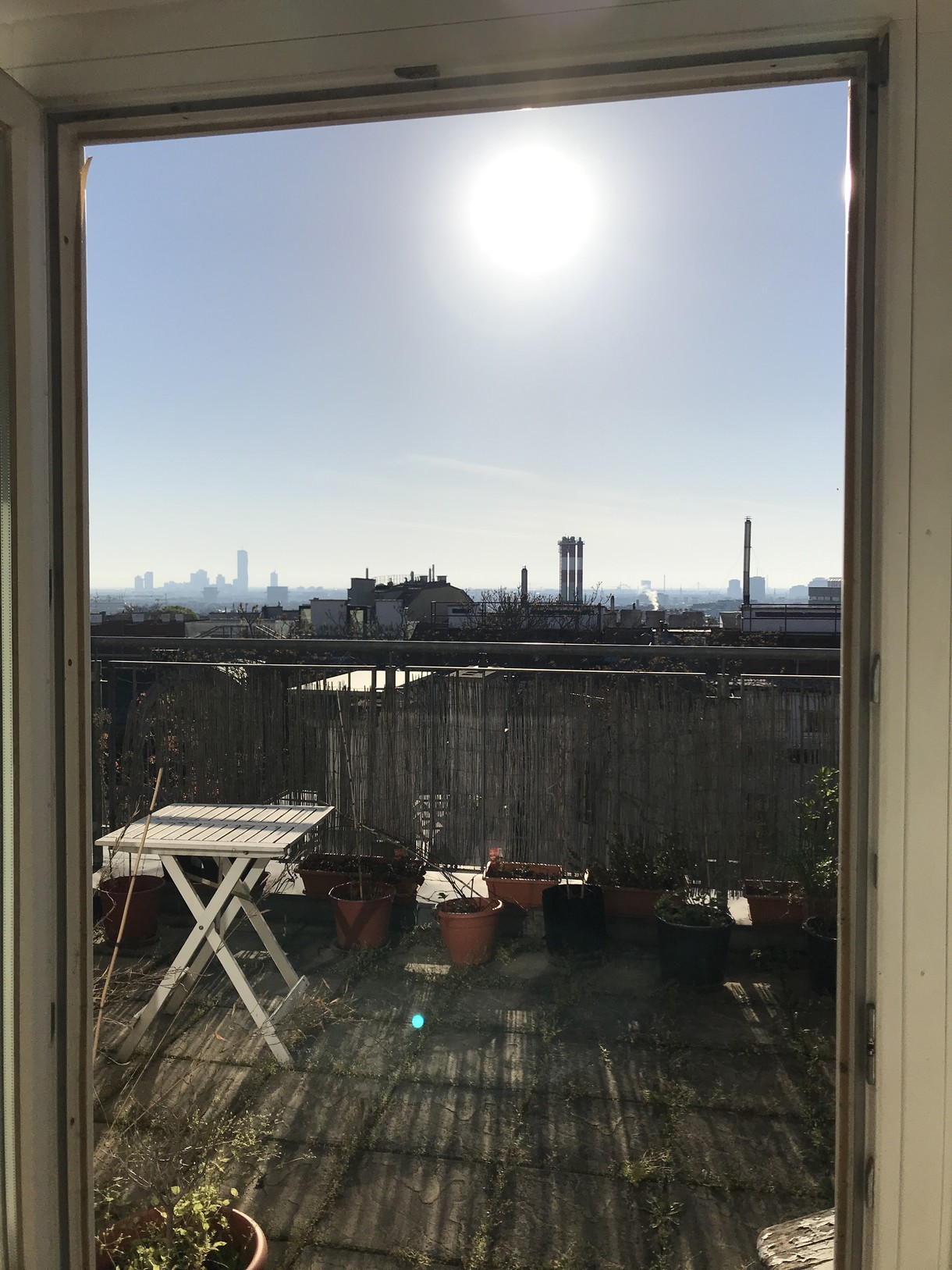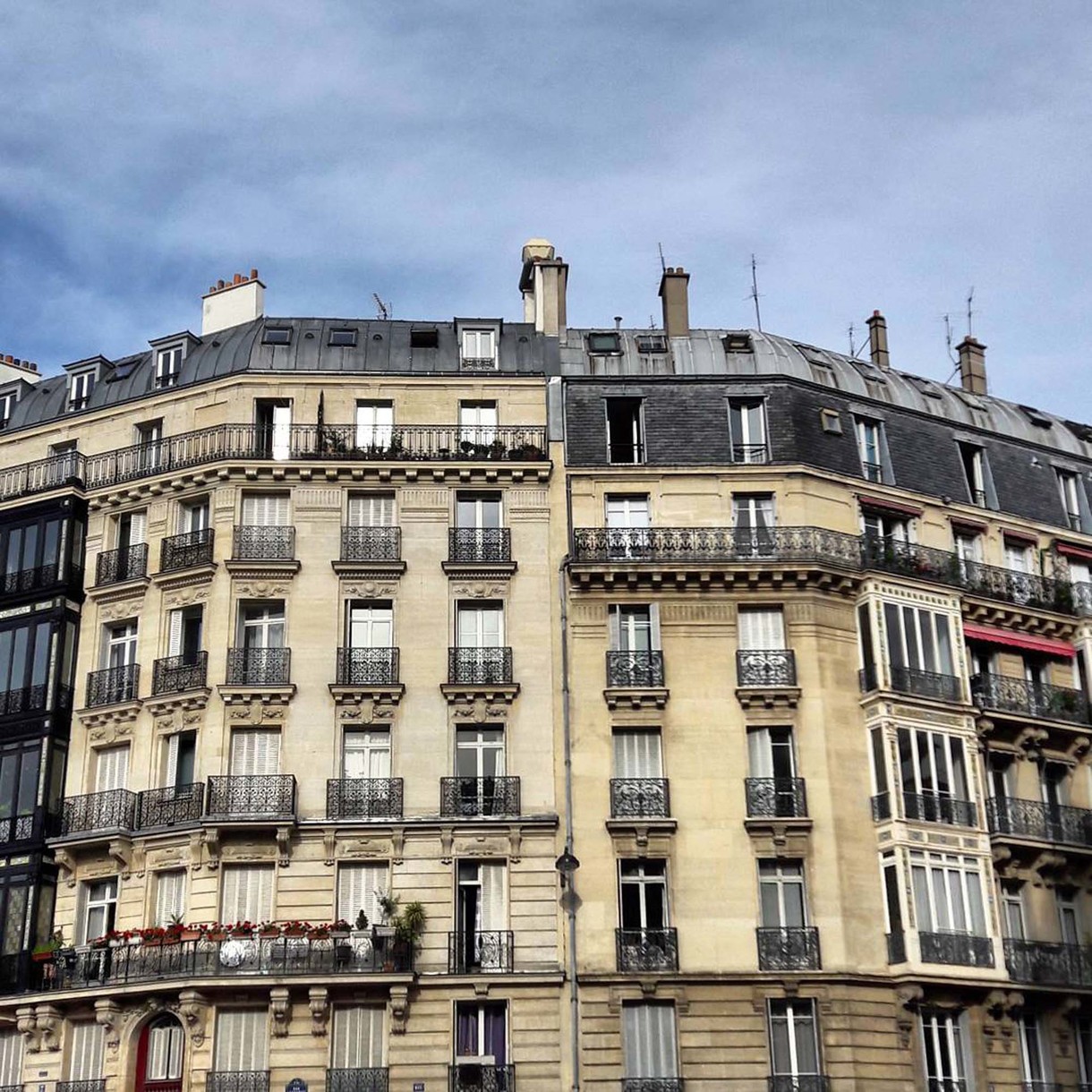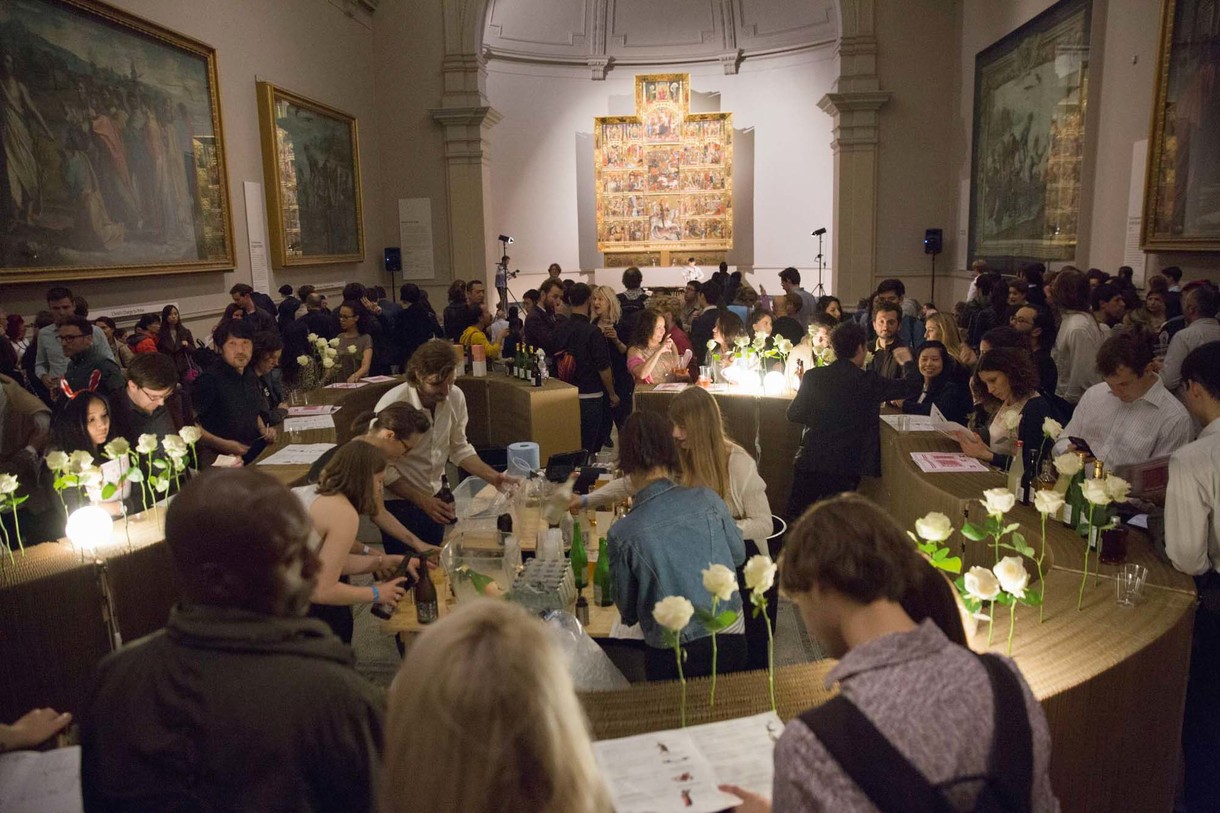Postcard from...
Rilla Khaled, Montreal, Canada
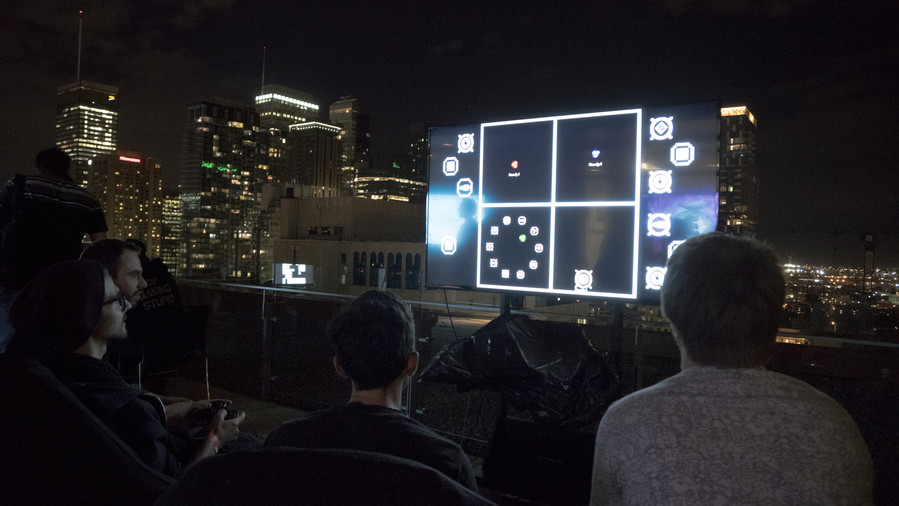
FLOP TOP Arcade, hosted by TAG, with Montreal in the background
I live in Montreal. Before this, I lived in Malta, in Copenhagen, in Ottawa and in Wellington. Such is the reality of establishing roots as an expat scholar with a PhD: we move around a lot, unless we have a damn good reason not to.
When my husband Pippin Barr and I left New Zealand in 2008, our fairly specialised PhDs—in computer science with a heavy slant towards game studies, design, and creation—made it unlikely that we would both find employment in departments that recognised both research and creation as equally valuables modes of productivity. So off we went, on a global search that ended up taking years.
A decade later, the emergent landscape of arts-based research and research-creation—as we refer to it here in Canada—has experienced significant change. At Concordia University, I’m at the Department of Design and Computation Arts, and I direct the Technoculture, Art and Games Research Centre (TAG). Core to TAG’s identity is interdisciplinarity and research-creation. Our membership spans the fine arts, computer science, communication studies, sociology, film studies and more. What brings us together is that we understand games as a collectively recognisable and relevant focal point through which to think about and creatively address diverse phenomena. At TAG we think about interactivity, virtuality and play. We think about leisure, labour and the rise of automation. We think about culture, narrative and art. We also do a lot of making: our making helps us think, and our thinking helps us make.
By way of example, one of the projects I head up at TAG is called Speculative Play. It’s premised on the idea that we can create interactive experiences that help people reflect on possible (and yes, often dystopian) futures based around contemporary and projected technologies. This is related to a broader category of research-creation called Speculative Design, but the secret sauce in our case is that we believe strongly in the power of interactivity and playfulness to bring about deeper thought-processes and engagement in audiences. Within Speculative Play I’m working on NEO//QAB, an interactive experience that confronts users/players with the possibility of a garment that allows others to control their appearance. The project is in reaction to the common thread in Western cultures around politicising and regulating Muslim women’s attire, specifically the niqab. With NEO//QAB we ask the question, what if we went all the way with this and just allowed people to see what they want to see? It’s through playing out this scenario that people can better grapple with the subtleties and emotions involved.
I don’t think I could have worked on this project in many other places. TAG is magic, and so is Montreal.
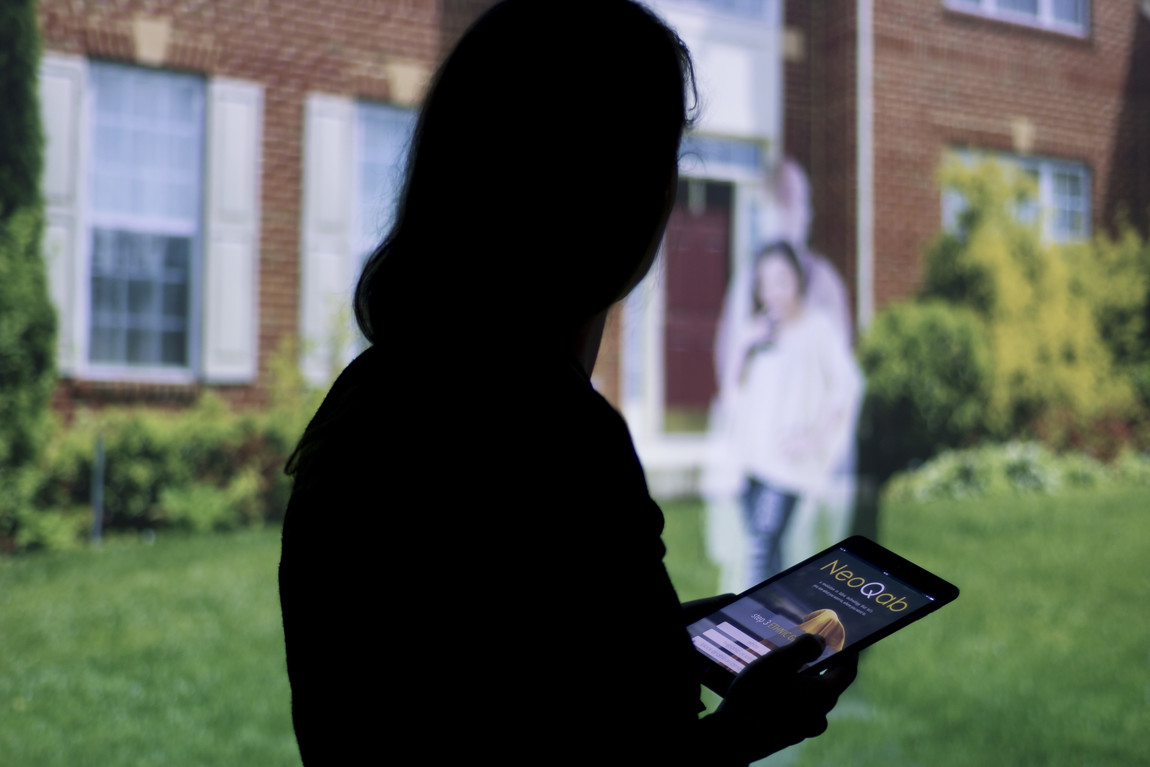
NEO//QAB app

